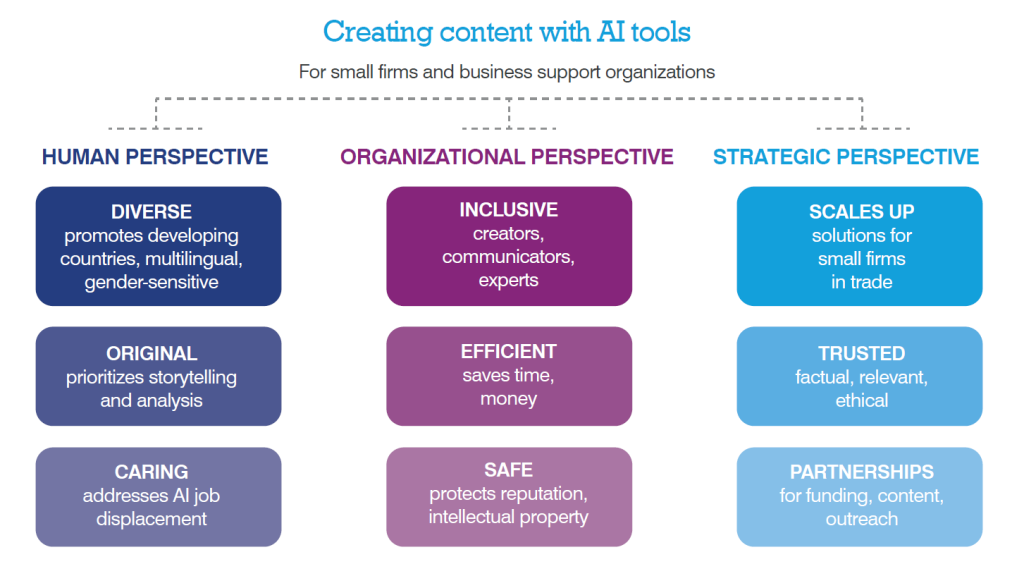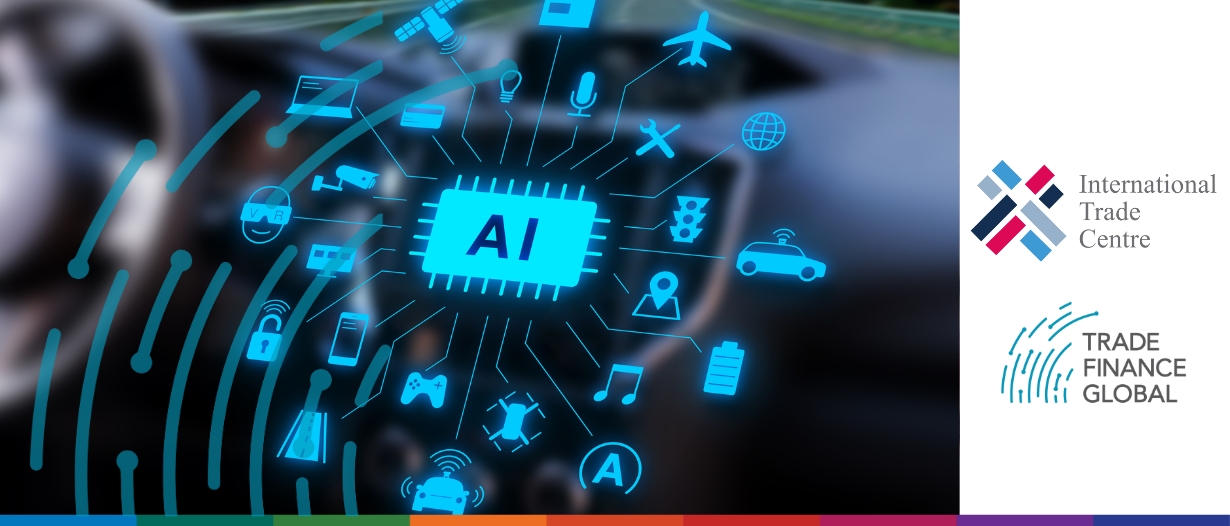Estimated reading time: 5 minutes
Artificial Intelligence (AI) in the workplace is seen as a mystical idea. Much like the genie in Aladdin, its power is equivalent to its possible risks.
The ideal situation is a collaborative effort between AI technologies and their human counterparts, aiming to find a balance between productivity and reliability.
The latest study by the International Trade Centre (ITC), titled “Living with the Genie – Artificial Intelligence in Content Creation for Small Businesses in Trade,” reveals that AI applications empower all levels of employees to create and disseminate content, thereby driving business expansion.
This is particularly beneficial for small enterprises in developing nations that face constraints in time and resources. Furthermore, AI technologies can be adopted by business support organisations and educational bodies to facilitate the growth of small businesses, provided it is approached correctly.
Vinton G. Cerf, a Vice President at Google who is known as one of the ‘fathers of the internet’, said, “Like all powerful tools, generative AI (GenAI) can be used in purposeful and constructive ways, but also in support of harmful and destructive intent, breeding lies and disinformation.”
Deepesh Patel, Editorial Director, TFG said, “The impact of Generative AI is already changing many aspects of our personal and professional lives, it is clear that there is no turning back. The genie is indeed out of the bottle. We have to learn how to adopt and utilise this technology, along with other technologies in our stack, to make access to trade and working capital safe, efficient, cheap and fast. However, we must be mindful of the risks, and ensure AI is in a safe and honest way.
What’s promising is that the international trade industry can cut down on inefficient manual tasks, freeing up time and capital to support global SMEs and rethinking credit risk in todays’ environment. But how do we set the guiding rails and make sure we control the use of these technologies? This ITC and TFG guide is a good start, but we need to continue to build upon this collaboration.”
Concerns about AI in business in developing nations
This report showcases one of the rare global inquiries into the utilisation of AI tools to aid small businesses in developing nations. Conducted in December 2023, the survey collated opinions from 73 business support organisations across 39 countries – 35 being developing nations – on employing AI in the professional environment.
Over half of the participants (52%) reported using ChatGPT and similar AI technologies. They expressed a need for guidance in the evolving realm of content creation and publication to assist small businesses in their expansion efforts.
The respondents advocated for caution, enhanced training, and verification measures to ensure the accuracy and ethical production of AI-generated content.
The study also draws attention to the dangers posed by deep fakes, a form of AI capable of generating highly convincing but fraudulent images, audio, and videos that could harm the credibility of businesses and even tarnish national brands.
The use of online news avatars and character-driven chatbots can either be beneficial or detrimental, contingent on their application. The current surge in text, image, audio, and video tools introduces issues such as bias, inaccuracies, and intellectual property concerns, despite their promised efficiencies.
These issues have implications for content creation and promotion as they erode confidence in information.
“AI is changing the way we live and work, and it can be a gamechanger for small businesses of developing countries if it’s used carefully and matched with advances in digital connectivity,” said ITC Executive Director Pamela Coke-Hamilton. “These new technologies can either fill in or widen the gap between the ‘haves’ and ‘have nots’. It’s important that they work for those who need it most.”
Four key AI Insights for small businesses in developing nations:
- Build trust in your brand. Focus on customer solutions with original content. For example, use AI to brainstorm ideas, research key players and customer needs but assess them with target users. Be factual, ethical and relevant. Researchers should examine datasets for bias, accuracy and potential time lags. Human reviewers should carefully review what goes into and comes out of AI-generated text, images, video and audio, and clarify when AI is used. Businesses can put human faces on the brand. For example, make a CEO personally available for regular interviews and virtual briefings, rather than use avatars.
- Be inclusive in shaping AI company strategies by bringing together communicators, subject-matter experts, engineers, project managers, innovation experts, trainers and others who use AI tools in the workplace. Use a common set of editorial tools and ensure training for the most common editorial needs.
- Understand how AI prompts can help or hurt your business. Work with national and regional business support organisations to master the queries that are directed to AI tools, to shape research used for business decisions.
- Explore AI-related business opportunities in developing countries, by leaning into local context and local perspectives. For example, an AI tool for a ride-hailing app could let people choose to ride with a same-gender driver.
Trade Finance Global and the ITC have partnered in creating and distributing this report.
























